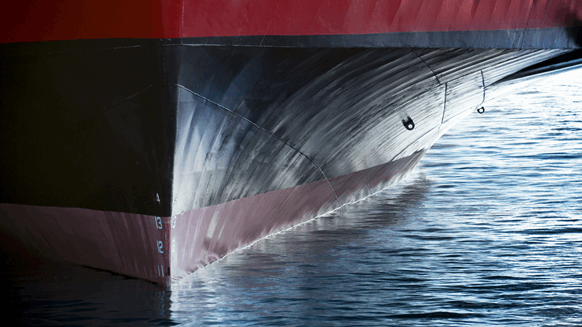Euronav NV has announced that it has signed an agreement with the United Nations (UN) to sell a Very Large Crude Carrier (VLCC) as part of a wider salvage operation for the FSO Safer located in Yemen.
The company said in a statement posted on its website that it will provide a “suitable vessel” that will go into dry dock for “necessary modifications” and regular maintenance before sailing to FSO Safer for an operation to remove and store the FSO oil.
The vessel will replace the FSO Safer and remain there, according to Euronav, which said it will help operate the vessel, even after the transfer of the oil, “for several months afterwards”. In a statement posted on its site, the UN noted that the “replacement ship” is expected to arrive in early May for the UN-coordinated operation, which it stressed involves removing more than one million barrels of oil from FSO Safer.
The UN also revealed in the statement that the United Nations Development Program (UNDP), which it said is implementing the “high-risk operation”, is hiring the maritime salvage company SMIT to remove the oil and prepare the Safer for towing to a green scrapyard. .
According to the UN statement, the FSO Safer has not been maintained since 2015 due to the conflict in Yemen and “has deteriorated to the point where there is an imminent risk that it may explode or break.” A major spill would devastate fishing communities on Yemen’s Red Sea coast and lead to the closure of the ports of Hodeidah and Saleef, the UN said, adding that the clean-up cost alone is estimated at 20 billion of dollars
Disruptions to shipping across the Bab al-Mandab strait to the Suez Canal could also cost billions more in global trade losses every day, the UN warned.
Beginning of the Operational Phase
“The purchase of this suitable vessel by UNDP marks the beginning of the operational phase of the UN-coordinated plan to safely remove the oil from the Safer and avoid the risk of a large-scale environmental and humanitarian disaster ” said the United Nations Development Programme. UNDP Administrator Achim Steiner said in a statement from the organization.
“We have to accept that this is a very difficult and complex operation. UNDP works 24 hours a day with experts from sister UN agencies such as IMO, WFP and UNEP, among others, as well as international consultancies on maritime law, insurance and environmental impact to ensure that we are deploying the best possible expertise to successfully complete this operation,” Steiner added.
David Gressly, UN Resident and Humanitarian Coordinator in Yemen, said: “The purchase of the vessel by UNDP is a truly important step, made possible by the generosity of donors, the private sector and citizens of the world.” .
“The parties to the conflict continue to endorse the plan. We are now in the operational phase and expect oil to be withdrawn from Safer in the next three to four months. But we still urgently need funding to implement the plan and prevent disasters,” added Gressly .
Hugo De Stoop, CEO of Euronav, said: “We are very proud to work with the UN in this delicate and sensitive operation to provide a suitable vessel but also the necessary expertise of our operational staff to support the procedure of salvation”.
“This critical operation requires dedicated support from Euronav for at least nine months and reflects our wider environmental and sustainability credentials,” he added.
The UN noted in its statement that the oil phase-out project has received significant international support, but added that “spiraling costs, mainly related to the war in Ukraine which led to a significant increase in prices in market for suitable vessels to carry out the operation, means that more money is still needed to complete the emergency phase of the plan”.
The UN said it had raised $95 million as of March 7, of which $75 million has been received, according to the organization. The total budget for the emergency phase of the project is 129 million dollars, the UN emphasized. To plug the budget gap, the UN said it is relaunching a crowdfunding appeal.
A critical step
Commenting on the UN agreement with Euronav, US State Department spokesman Ned Price called it “a critical step in the implementation of the UN’s emergency plan to avert an environmental catastrophe regional, an economic disruption in the Red Sea with global ramifications and the exacerbation of the world’s worst humanitarian crisis”.
“We must maintain momentum to carry out the emergency operation. The UN urgently needs another $34 million to transfer the Safer oil to the newly acquired ship. The United States, which has contributed $10 million to this effort, will renew its work to push for more support to prevent this impending disaster,” Price added.
“We thank donors who have already contributed generously. The international community, including the private sector, must come together to address this looming threat. Yemenis have already suffered more than eight years of war; they cannot bear the loss of livelihoods in the fishing industry, disruption of access to food and water for millions of people, and health complications from contamination that would result from a safer massive oil spill.” Price continued.
To contact the author, please send an email andreas.exarcheas@rigzone.com


